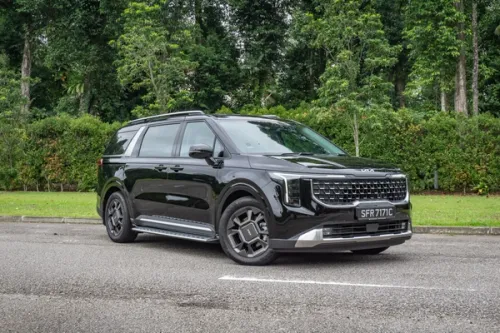Automated driving: Bosch makes Hollywood fiction a reality
As one of the world’s largest providers of mobility solutions, Bosch has been working on automated driving since 2011 at two locations – Palo Alto, California, and Abstatt, Germany. The teams at the two locations can draw on a worldwide network of more than 5,000 Bosch engineers in the field of driver assistance systems. The motivation behind the development at Bosch is safety. Worldwide, an estimated 1.3 million traffic fatalities occur each year, and the numbers are rising. In 90 percent of cases, human error is the cause. Relieving drivers of driving tasks in critical traffic situations can save lives. Studies suggest that, in Germany alone, up to 72 percent of all rear-end collisions resulting in casualties could be avoided if all cars were fitted with the Bosch predictive emergency braking system. Drivers can also reach their destinations safely and with minimum stress using the Bosch traffic jam assistant. At speeds of up to 60 kilometers per hour, the assistant brakes automatically in heavy traffic, accelerates, and keeps the car in its lane.

“With driver assistance systems, Bosch expects to generate sales of one billion Euros in 2016,” Dr. Dirk Hoheisel says as he sits in the board of management. Assistance systems are the cornerstone for automated driving, which will become established in a gradual process. Bosch already has its sights on highly automated driving, in which drivers no longer have to constantly monitor the vehicle. “With Bosch highway pilots, cars will be driving automatically on freeways by 2020, from entrance ramp to exit ramp,” Hoheisel predicts. In the decade that follows, vehicles will be fully automated, capable of handling any situations that arise.
As vehicles gradually take over more and more driving tasks, safety-critical systems such as brakes and steering have to satisfy special requirements. Should one of these components fail, a fall-back is needed to ensure maximum availability. Bosch already has such a fall-back for brakes: the iBooster, an electromechanical brake booster. Both iBooster and the ESP braking control system are designed to brake the car – independently of each other – without the driver having to intervene.
Automakers worldwide appreciate Bosch technology and expertise, as was recently demonstrated when the electric car manufacturer Tesla presented Bosch with its Excellent Development Partner award. And at the CES in Las Vegas, Bosch will not only be presenting its extensive product portfolio for driver assistance functions and braking systems at the Vehicle Intelligence Marketplace. The company also exhibited a true Hollywood legend: K.I.T.T. from the action series “Knight Rider”.
Credits: Oneshift News Team

- Convenient and Hassle-Free
- Consumer Protection
Transparent Process
With No Obligation


Get the Best Price for your used car
from 500+ dealers in 24 hours








